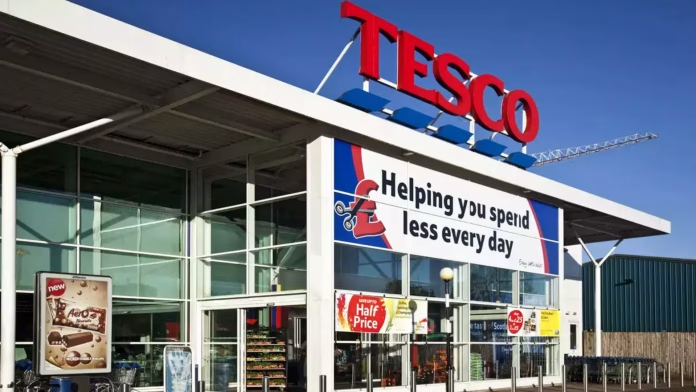In a recent development, Tesco, the largest supermarket chain in Britain, has taken decisive action to lower the prices of over 500 essential items on Friday. This strategic move serves as a significant indicator that the prevailing wave of grocery inflation is expected to subside throughout the course of this year.
As stubbornly high inflation continues to overshadow pay growth, it has evolved into a prominent political concern within Britain. On Tuesday, supermarket chains found themselves compelled to defend against accusations of profiteering amid the ongoing cost-of-living crisis.
Tesco announced a significant reduction in prices for specific varieties of its own-brand pasta, tinned tuna, milk, grapes, cheese, and other products. The supermarket chain implemented an average price cut of 13%, emphasizing its collaboration with suppliers to ensure that reductions are passed on to customers whenever possible.
In recent weeks, all major grocery chains in Britain, including Sainsbury’s, the second-largest player in the market, have unveiled price reductions on essential items. These measures are being closely monitored by the Bank of England, lawmakers, and consumers alike, as they hold high hopes for relief from the escalating prices.
Read More: UK’s Sainsbury’s continues to slash prices, signaling a decline in inflation
Tesco reported that they have implemented a second price reduction of 5 pence on fusilli pasta in recent weeks. This means that customers will now pay 20 pence less for a 500 gram pack compared to the price in May. Additionally, a four-pint bottle of milk has also seen a second price reduction, now 10 pence cheaper, within the span of two months.
On Friday, Aldi, the fourth-largest grocer in Britain and a German discount supermarket chain, announced a price reduction of 10 pence on four pints of milk. This brings the price down to £1.45, marking the lowest price offered in Aldi stores since September.
Based on the latest available data, food and drink inflation in the UK stood at 18.3% in May, as reported by official sources. Industry data indicates that this rate moderated slightly to 14.6% in June.
In earlier statements made in June, Tesco acknowledged that although certain commodity prices were experiencing a decrease, the persistently high energy and labor costs continue to contribute to inflationary pressures.





